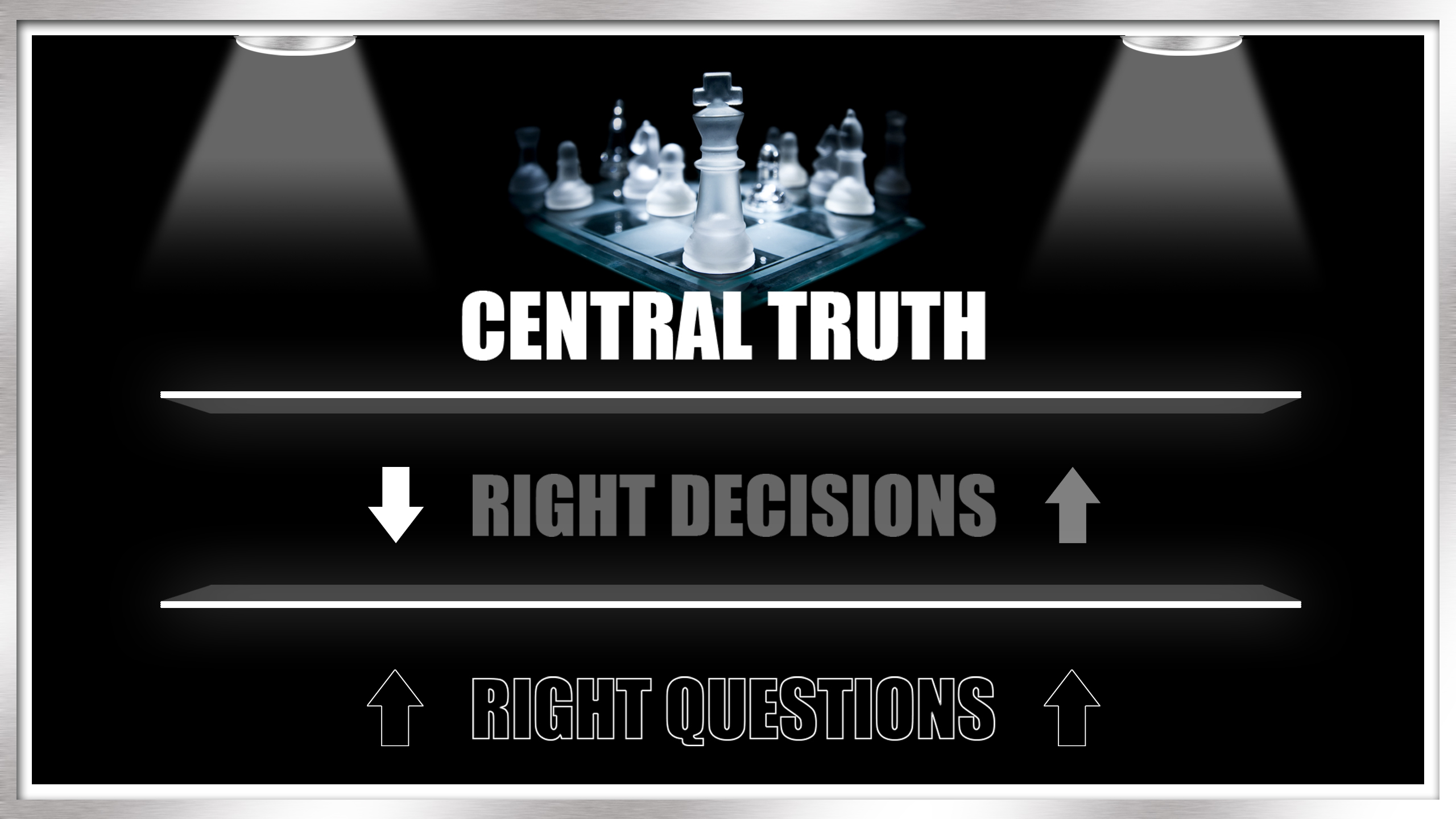The Central Truth | Part II
 It Can be Overwhelming
It Can be Overwhelming
Being able to sort through all of the headlines and subject matter experts can be overwhelming when you’re trying to figure out who’s who and what’s what, especially when everyone insists that they’re right and everyone else is just trying to catch up.
But there’s a tool that you can use that brings a substantial amount of clarity to whatever it is you’re trying to process called, “The Central Truth.”
The idea is that every issue has at its core a Central Truth – the bottom line that needs to be prioritized in order for the right decision to be made. In Part I of this series we looked at how by identifying what it is that’s most important, you’re able to prevent noble sounding tangents from distracting you from that one thing that’s more important than anything else.
The Central Truth.
But in order for this to work, you first have to identify what Truth actually is.
Welcome to Part II…!
Perfect Accuracy
Regardless of how obvious it may appear, not everybody defines Truth in the same way. Bear in mind, we’re not talking about the way in which philosophers have pondered and debated the meaning of Truth. Rather, we’re looking at Truth as being the conclusion you arrive at after a comprehensive evaluation of all the facts. For the sake of our conversation here, we’ll call it “Perfect Accuracy.”
You can answer a question correctly without being completely honest and you can be honest without telling the whole truth. This is part of the reason why people differ when it comes to the way in which Truth is defined because of the way the facts being considered can be limited to a collection of carefully selected soundbites – bits and pieces of credible sounding data that are presented in a way that’s designed to make a flawed perspective appear both complete and irrefutable.
In order to arrive at “perfect accuracy” you have to engage in a comprehensive evaluation of all the facts, as opposed to a manipulation of just some of the facts. And you can’t dismiss any one piece of data as irrelevant just because it doesn’t line up with your philosophical preferences.
Again, it has to be a complete assessment of all the information and it’s going to be in the context of the questions that are being asked that will reveal whether or not the person posing the questions is focused on the Central Truth or is resolved to promote a different reality and the subsequent lie that serves as its theme.
Moral Absolutes
Up to this point, the illustration of the Garden of Eden and the way in which Satan used an obviously calculated question in order to compromise the absolute nature of the Central Truth works well because of the way the Central Truth is so clearly defined and very few would dispute God’s instructions as being fair and even generous.
But when you get into Moral Issues, the Central Truth becomes a source of contention in some instances because of the way some want to position themselves as their own moral authority.
For example, in the minds of some the issue of Homosexuality has as its Central Truth the idea that, “I have the right to be happy.” Abortion is another case where, for many, the Central Truth is, “I have the right to be happy” or “I have the right to make decisions pertaining to my body.”
If one’s happiness and health is established as the Central Truth, both the decisions and the questions that support those choices are easily established and answered in a way that provides the individual the ethical endorsement they need to engage those behaviors and shrug off any criticism as being inappropriate and even cruel.
But if Truth is going to be defined as “perfect accuracy” that’s determined by a comprehensive evaluation of all the facts and not just those that cater to one’s personal preferences, even if you don’t believe or agree with the Substance of Scripture, you have to at least acknowledge the way in which the Bible utterly condemns both practices.
This is where the “Central Truth” often becomes a volatile topic of discussion because you’re not just questioning a person’s logic as much as you’re challenging their authority to define for themselves the difference between right and wrong.
And while this tension surfaces primarily in the context of moral issues, it’s often at the root of the disagreements that happen in Politics, Medicine and even in the Economy.
Like what’s already been mentioned, you have to ask the right questions in order to make the right decisions. But even before you ask, “What’s the problem?” You first have to ask, “Who’s in charge?”
We’ll look at that in Part III…






You must be logged in to post a comment.